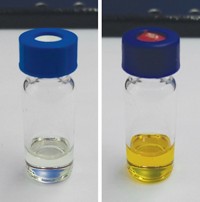Advertisement
Grab your lab coat. Let's get started
Welcome!
Welcome!
Create an account below to get 6 C&EN articles per month, receive newsletters and more - all free.
It seems this is your first time logging in online. Please enter the following information to continue.
As an ACS member you automatically get access to this site. All we need is few more details to create your reading experience.
Not you? Sign in with a different account.
Not you? Sign in with a different account.
ERROR 1
ERROR 1
ERROR 2
ERROR 2
ERROR 2
ERROR 2
ERROR 2
Password and Confirm password must match.
If you have an ACS member number, please enter it here so we can link this account to your membership. (optional)
ERROR 2
ACS values your privacy. By submitting your information, you are gaining access to C&EN and subscribing to our weekly newsletter. We use the information you provide to make your reading experience better, and we will never sell your data to third party members.
Synthesis
Cellulose Processing Via Acidic Hot Water
October 15, 2007
| A version of this story appeared in
Volume 85, Issue 42
One technical hurdle to overcome in using cellulose as a renewable feedstock to make fuels and chemicals is transforming the glucose polymer chain into readily usable monomeric sugars. Cellulose typically is hydrolyzed by liquid acids to form glucose, which subsequently is hydrogenated to prepare sorbitol, mannitol, and other polyols. Haichao Liu and coworkers at Peking University, in Beijing, have come up with a potentially greener and less expensive method for cellulose conversion that avoids handling corrosive acids: The team uses hydronium ions (H3O+) formed in situ in hot water to make glucose followed by instantaneous hydrogenation of the glucose over a carbon-supported ruthenium catalyst to form polyols (Angew. Chem. Int. Ed. 2007, 46, 7636). The Peking researchers take advantage of water's propensity to form H3O+ at temperatures above 200 oC (near-critical water)—a property already utilized for some acid-catalyzed reactions. The in situ acid formation is reversible upon cooling, which should eliminate problems associated with acid recovery and waste disposal, they write.




Join the conversation
Contact the reporter
Submit a Letter to the Editor for publication
Engage with us on Twitter